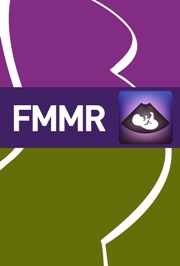Article contents
PARVOVIRUS B19 INFECTION IN PREGNANCY
Published online by Cambridge University Press: 10 August 2005
Extract
Parvoviruses are widespread in nature, with a diversity of virus types affecting many animal species, usually in a species-specific manner. Some members of the parvovirus family give rise to asymptomatic infections but others are highly pathogenic, causing disease not only in adults but also in the young, the newborn and in the fetus. Parvoviruses of animals have for long been regarded as agents of reproductive failure and parvovirus B19 was recognised as a cause of fetal loss in humans in the 1980s. Moreover, following the control of congenital rubella by pre-pubertal and child vaccination, parvovirus B19 infection has emerged as probably the leading cause of viral embryopathy. This review will focus on the laboratory diagnosis of parvovirus B19 infection following exposure in pregnancy. The indications for testing maternal and fetal samples and the interpretation of test results will be discussed and a section is included on clinical management of the infection in pregnancy. The obstetric outcome in pregnant women who seroconvert will be reviewed.
- Type
- Research Article
- Information
- Copyright
- © 2005 Cambridge University Press
- 9
- Cited by


